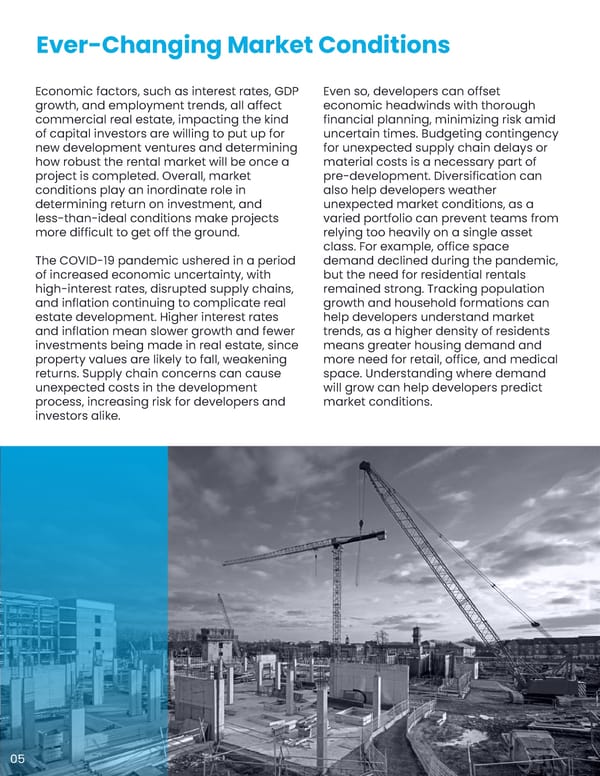Ever-Changing Market Conditions Economic factors, such as interest rates, GDP Even so, developers can offset growth, and employment trends, all affect economic headwinds with thorough commercial real estate, impacting the kind financial planning, minimizing risk amid of capital investors are willing to put up for uncertain times. Budgeting contingency new development ventures and determining for unexpected supply chain delays or how robust the rental market will be once a material costs is a necessary part of project is completed. Overall, market pre-development. Diversification can conditions play an inordinate role in also help developers weather determining return on investment, and unexpected market conditions, as a less-than-ideal conditions make projects varied portfolio can prevent teams from more difficult to get off the ground. relying too heavily on a single asset class. For example, office space The COVID-19 pandemic ushered in a period demand declined during the pandemic, of increased economic uncertainty, with but the need for residential rentals high-interest rates, disrupted supply chains, remained strong. Tracking population and inflation continuing to complicate real growth and household formations can estate development. Higher interest rates help developers understand market and inflation mean slower growth and fewer trends, as a higher density of residents investments being made in real estate, since means greater housing demand and property values are likely to fall, weakening more need for retail, office, and medical returns. Supply chain concerns can cause space. Understanding where demand unexpected costs in the development will grow can help developers predict process, increasing risk for developers and market conditions. investors alike. 05
 Overcoming Real Estate Obstacles Page 4 Page 6
Overcoming Real Estate Obstacles Page 4 Page 6